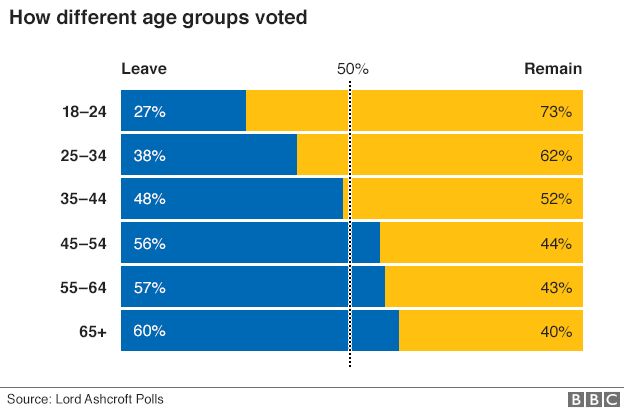I have no issues with non-voters. I was referring to the various "verbal" ticks in your post: "many people on here sneer at. Lazy bugger", "I'm one of those weirdos", "I find myself in the middle on many things. fecked up, right?"
I don't think non-voting is a matter of pride or a matter of shame, that post of yours makes it seem you think it is a matter of pride. "Being in the middle" and seeking compromise are also concepts that aren't half as rare as you think.
I'm sorry, but you misunderstood. It is a very divided time politically in the UK and in many other places - I know it's been well documented, but I don't know how much you've felt of that personally? That environment does lead people to describe me, a young non-voter, as a lazy voter. Without ever asking. Or better yet, when people do ask they assume my truth is a lie, an excuse. You can find evidence of it in this thread, if you think I'm making it up. Many people have literally said, people should be ashamed for not voting. It not being your view doesn't change the fact that it is a view, which it is legitimate to push back on.
I agree with you that being in the middle is not unusual. I'm not sure about right now, but I think most people, most of the time are somewhere in the middle. However at this point in time it is something that people get offended by, you're implored to pick a side because it is in the best interests of the country to do so, and if you choose not to, people hold it against you. This isn't the time to twiddle your thumbs, you have a responsibility to make a choice. I have been told that plenty.
If I hold an opinion against Jeremy Corbyn, I'm a "May-bot". If I hold an opinion against the Mueller investigation, I'm "probably a Trump fan in disguise". If I hold an opinion against the notion that the only reason people voted Leave is because they're racists, I'm assumed to be a Leave supporter, or at least a Leave apologist. You are not allowed to be in the middle, in many cases. People just assume you're on "the other side". I have direct evidence of it, right here, so you can't deny that reality.
For me, voting is not a point of pride. For some people it is. Just because you're not one of those people, or you're not exposed to it much, doesn't change the fact that I have been. And I do find similar sentiments from people on here, in this thread, regularly.
But that's now, what about before the referendum?
No, I didn't. At that point in time I was dealing with my step dad being diagnosed with a second bout of cancer, my girlfriend having an abortion that went badly, and was planning a move to South Africa. I was probably more conscious of South African politics than UK ones. It just didn't rank highly in my priorities at the time. I am selfish, and ignorant, and many other things. At the end of the day, I'm politically disenfranchised at least in part because of the political system, and the actors within it. I don't think that's a crazy thing to say, given the incompetence of politicians recently. That makes it sadly very easy to deprioritise it. I read up about it, I tried to understand it, I couldn't really, and I was ok letting the rest of the population make a decision without me.
I get why people don't respect that, but it's just my reality, and the reality of many people in this country. I don't think demonising those people is helpful, in the long run.

 my word, there’s 40,000 sneering posts in this here thread.
my word, there’s 40,000 sneering posts in this here thread.
